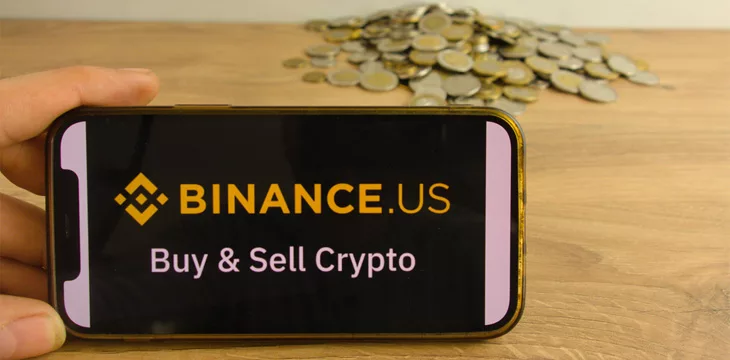|
Getting your Trinity Audio player ready...
|
Binance.US has abandoned its deal to acquire the assets of Voyager Digital, according to a statement tweeted by the bankrupt digital asset lender.
https://twitter.com/investvoyager/status/1650921887512272917?s=20
In a statement to The Block, Binance.US said that the “hostile and uncertain” regulatory environment in the U.S. had “introduced an unpredictable operating environment impacting the entire American business community.”
Voyager filed to notify the court of Binance.US’ decision to terminate the agreement on April 25.
The plan was initially agreed between the parties and approved by Voyager’s bankruptcy court in March. Under the agreement, Binance.US would purchase Voyager’s assets, and Voyager customers could have seen up to 73% recovery of their assets.
However, even as a bankruptcy court gave the green light in March, the deal was on questionable grounds. Regulators made filings with the court expressing concern about Binance.US: the New York Department of Financial Services (NYDFS) told the court that Voyager had operated as an unlicensed and illegal digital currency business in New York, which has strict licensing rules around digital asset companies.
The SEC also told the court that the deal would likely violate U.S. securities laws, particularly relating to the Voyager token forming part of the purchase. Additionally, while it didn’t confirm that Binance.US was under investigation by the Securities and Exchange Commission (SEC), it did say that “there are numerous public reports and press accounts concerning investigations into the purchaser and its affiliates.”
“Regulatory actions, whether involving Voyager, Binance.US, or both, could render the transactions in the plan impossible to consummate,” the SEC said in its filing.
Though the objections were not ultimately enough to stop the deal from going through, the bankruptcy judge in charge of the case said that the objections put the court in a difficult position:
“I am in the absolutely unenviable position of having to make a ruling about the proposed transaction in the face of hearsay accusations of potential wrongdoing in an industry where other firms have apparently engaged in real wrongdoing. I have been given no evidence…that Binance.US will misuse customer assets, or that it cannot be trusted.”
Given Binance’s comments on its decision to pull out of the deal, the regulators’ objections are notable. Binance has often chafed at attempts by regulators and lawmakers to tighten rules around digital assets and appears to be facing growing skepticism from authorities in the U.S. The exchange has long been rumored to be under investigation for many reasons, and a Reuters investigation into the company revealed that the company made a mission of flouting compliance rules to maximize growth. Then, last month, the Commodity Futures Trading Commission (CFTC) brought a civil suit against Binance and its founder Changpeng Zhao for ‘calculated’ violations of the Commodity Exchange Act by offering unregistered derivatives products to U.S. customers.
Between Binance’s track record and the objection of regulators, it doesn’t seem too far-fetched to imagine that the deal was called off over fears it would kick the regulatory hornets’ nest and invite further scrutiny over Changpeng Zhao’s business empire.
As for Voyager, the lenders’ lawyers told the court that it would turn its attention to liquidating the more than $1 billion in digital assets held by the firm to pay creditors. Voyager noted that its reorganization plan in its Chapter 11 bankruptcy proceedings allows for the direct distribution of cash and digital assets to customers.
Follow CoinGeek’s Crypto Crime Cartel series, which delves into the stream of groups—from BitMEX to Binance, Bitcoin.com, Blockstream, ShapeShift, Coinbase, Ripple,
Ethereum, FTX and Tether—who have co-opted the digital asset revolution and turned the industry into a minefield for naïve (and even experienced) players in the market.

 02-28-2026
02-28-2026 




